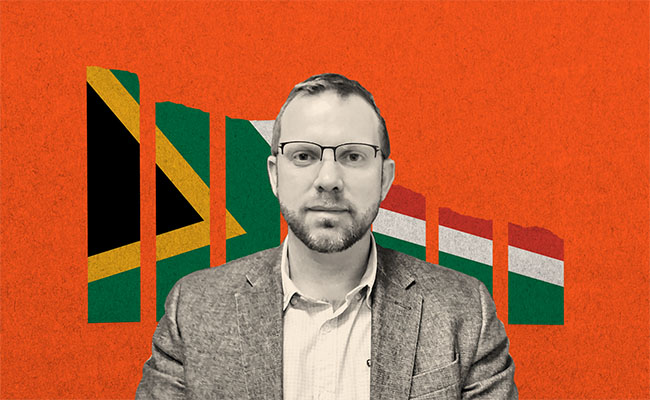What more is there to say about the murder of insolvency attorney Bouwer van Niekerk that isn’t absolutely and entirely obvious? This was a horrible, despicable, malicious, cold-blooded and targeted act. Obviously.
But it’s so much more than that.
First, there is the brazen nature of the murder. Van Niekerk was gunned down in the boardroom at his SmitSew law office in Saxonwold, Joburg in broad daylight. Someone let the gunmen in. Someone knowingly lured Van Niekerk to the office. This is the kind of murder that is partly designed as a threat to others to stay away – and in this case, for at least one person working on the case, the threat proved successful. That speaks to how successful intimidation is in South Africa, but also how bad crime prevention is, since the risk of being caught was clearly discounted.
Second, there was the fact that Van Niekerk had received multiple death threats to walk away from a suspected Ponzi scheme case. This is now a pattern, and speaks to the formalisation of the intimidation business. Multiple other cases of threats to investigators, whistleblowers and prosecutors illustrate the growing dimensions of the problem.
And that brings us to the third issue: Van Niekerk’s murder is actually just the latest in a long line of killings, which are gradually becoming more flagrant. Over the past five years, there have been at least 10 murders or attempted murders in this category, including, notably, the 2021 assassination of Gauteng health official and PPE corruption witness Babita Deokaran, who was shot outside her home, and Cloete and Thomas Murray, a high-profile insolvency practitioner and his son gunned down in a suspected hit.
Political parties have called for more urgency and focus on the prosecution of assassins and for legislative reform to protect whistleblowers. During his state of the nation address in February this year, President Cyril Ramaphosa stated the government would finalise the whistleblower protection framework and introduce the Whistleblower Protection Bill in parliament during this financial year, but no such bill has been introduced yet. These measures would, of course, be useful – but, actually, we need more.
Solving the problem
There are two background issues: the struggling economy and state tenders. Most of the assassinations have happened in one or other of these categories: either we are looking at people who engineered a fraudulent government tender, or we are looking at people involved in financial fraud.
The business rescue sector really emerged out of the liquidations business, as companies involved in liquidations pivoted to this new opportunity. There are plenty of great business rescue practitioners out there, and it’s important to have them in order to save as much as possible of struggling businesses. But the record also shows that there are plenty of dodgy organisations too, which deliberately stretch out business rescue operations to keep the fees flowing.
There will always be companies that go belly up, but South Africa’s miniscule GDP growth rate means there are probably many more business failures now than there otherwise would be. That is not a quick fix, but it is an important one.
The way to solve the second problem is simple: don’t issue tenders to companies that have no track record in producing the required products or services, and in all circumstances, do not do so above fair market value. It’s that obvious. If the tender is issued to a dubious body established yesterday by people who don’t know the first thing about delivering the service, there is a good chance it’s fraudulent. And when their fraud is discovered, there is almost certainly going to be a huge fight over how to fix it, and that includes the possibility that the fraudulent party will do anything to shake investigators off their tail – including killing anyone on their tail.
Minister of justice Mmamoloko Kubayi has condemned the killing of Van Niekerk, extended condolences, and called for a full investigation. But actually, it’s her party under the spotlight here. Journalist Carol Paton points out in her New24 column published this week that during the Zondo commission, 95 members of the ANC were implicated in corrupt behaviour. The ANC decided that all should present themselves voluntarily to the integrity commission to state their side of the story. Five did; 90 are still at large in the national executive committee, cabinet, parliament and the provincial legislatures. No charges have yet been brought against any of the implicated.
This is a party with a deep trust deficit on this, and many other issues. And every killing makes it worse. 💥
This story first appeared in currency.co.za here. Subscribe to Currency's fabulous newsletter here.




Join the conversation